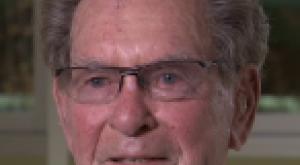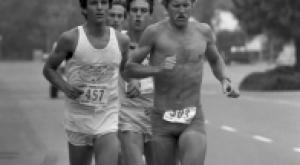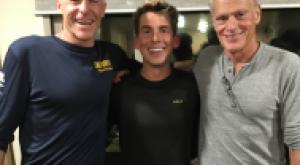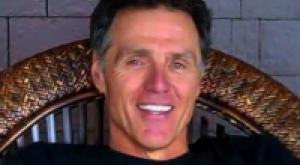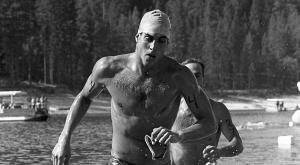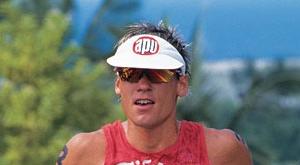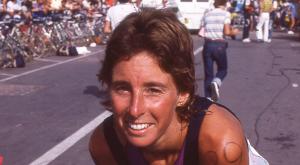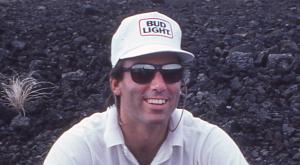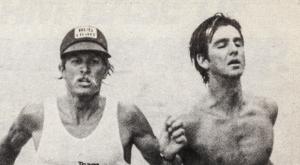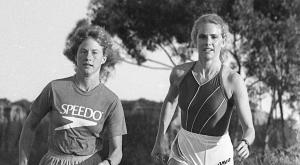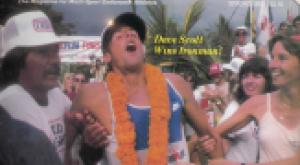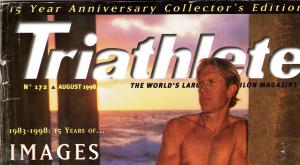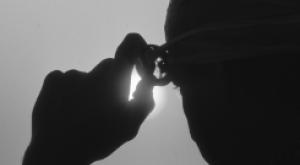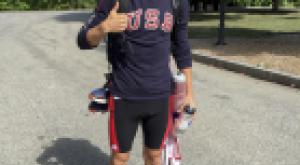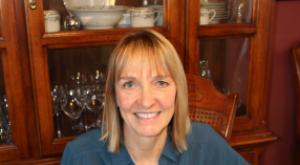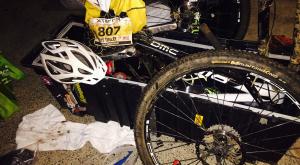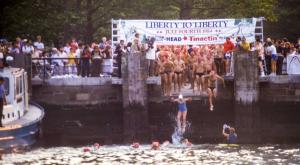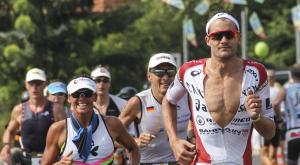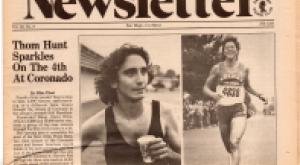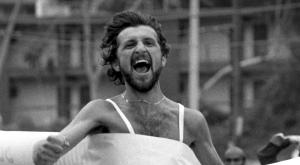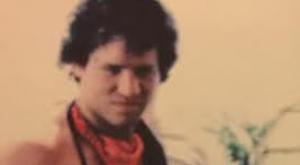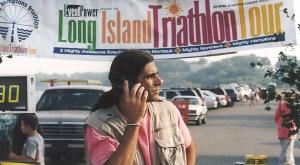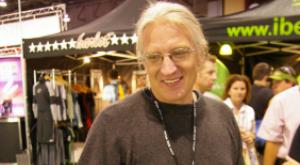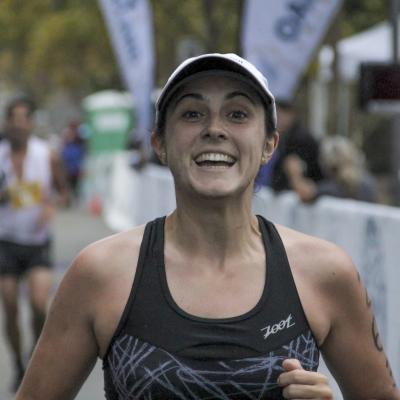
On the last weekend of August, 2015, like thousands of other men and women across the globe, young and old, rich and poor, in all shapes, sizes and colors, across the continuum of fitness from barely there to fiercely (and for most, naively so) competitive, my 23-year old daughter McKenna finished her first triathlon. It was a lowly sprint-distance race held on a somewhat awkward course in Oakland, California. The finish line announcer didn’t call her name. There was not, in fact, a finish line announcer. McKenna didn’t place, not in the overall and not in her age group. Her greatest impact on the event was that she paid her entry fee and finished safely. No one in attendance but her few friends, who were also racing, took note. Oh, and her Dad. I cheered and cheered. I ran breathlessly back and forth from one transition to the next like a damn parent, camera in hand, McKenna’s tri-bag bouncing around on my back like a sack full of angry squirrels. Hell, you would have thought it was my first triathlon. And I marveled for most of the day, as I still marvel now, days later, that it all seemed such a Big Deal.
I covered my first multisport event in 1979. I’ve watched, reported on, photographed, raced, announced, or produced hundreds of these things, maybe thousands. You think it would be old hat by now. And to some extent, I confess, there are times when I do take it all for granted. But that August Saturday in Oakland I was reminded in a most visceral sense, that finishing a triathlon – never mind how long, never mind how tough – still means something. Being a triathlete still matters. A lot. Those among us who dismiss the influence of the sport on the weekend warriors, the fat guys on cheap bikes, the middle-aged gals taking what just might be the biggest personal leaps of their lives… well, if you can’t embrace that with both arms and a tear in your eye, you’re missing the best part of the whole deal.
It was sure hard to miss that Saturday. As she approached the finish line of her first race, McKenna was not just smiling, she was exhultant. Posing as official media (because I know how and there wasn’t anyone else there to fight me for the spot), I stood square in the center of the road and clicked away as she came right at me. I’d never seen her more genuinely happy, more proud of herself. And this is not a young woman who has anything to prove. Growing up, she was an astonishingly talented athlete: a national-level Irish dancer and a promising distance runner. She knows her way around a podium, knows what it’s like to break a tape, fly home with the big trophy stashed in the overhead. Then, at age 16, she was diagnosed with Crohn’s Disease, and things went quickly from bad to worse. Dreams of success on the dance floor or the track were replaced by tendrils of hope that she would leave the hospital on Tuesday rather than Wednesday. We almost lost her once, but she fought back not just gamely but with a resigned ferocity, the like of which I have only seen late in the day along the Queen K Highway in Kona, in athletes who find themselves with the day in ruins and nothing left but a simple and solitary objective: Finish the damn race. Finish. The. Damn. Race.
She missed two semesters at Cal Berkeley, but she finished that race too -- grimly at times, yes, but graduating in 2014 with a Berkeley-esque degree in Political Economy. Almost immediately, she found work at, of all places, the Crohn’s & Colitis Foundation, managing the organization’s Team Challenge Endurance Program in the South San Francisco Bay and inspiring other first-timers like herself not only to get off the couch and into the game, but raise significant amounts of money for the cause in the process. Her own battle with Crohn’s, ongoing to this day, continues to drive her.
And yet. And yet. She was so stoked about finishing her race in Oakland she could barely contain herself. Her finisher medal stayed around her neck for the rest of the day. Her numbered arm was on display – and purposely so – for all to see at our post-race brunch. Later, stepping out of an elevator, an older gentleman asked her what the medal was for.
“I did my first triathlon this morning,” McKenna replied.
“And you’re still walking?” the man replied.
So you see, there it is. You may at some point heard this from me as a journalist, perhaps even from a microphone at a finish line or an award ceremony. But hear it now from a proud Dad; hear it from his newly fledged triathlete of a daughter: this sport still packs an emotional punch. There is power here, at every level, and enough pride to fill the world.

